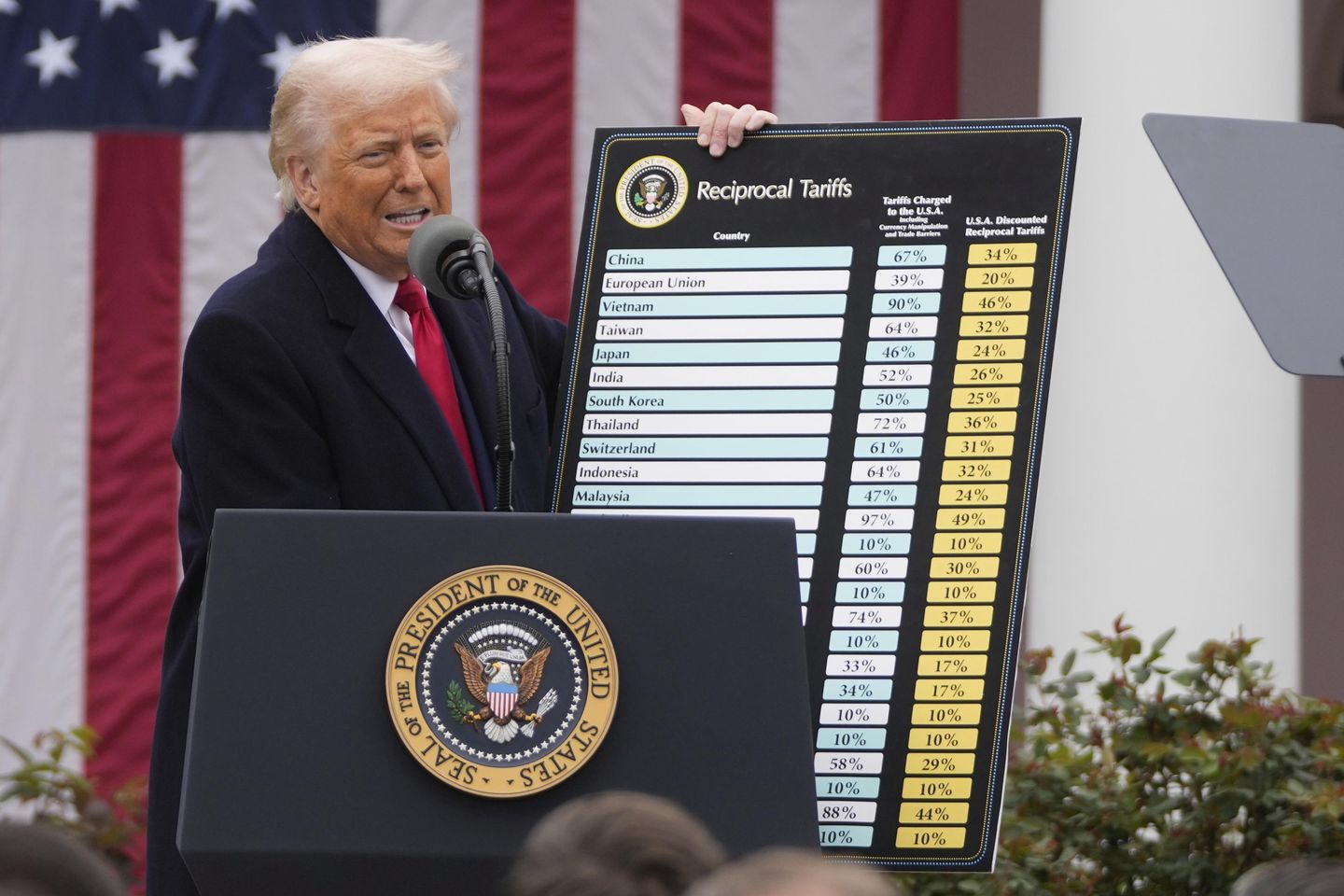
The U.S. Court of International Trade ruled Wednesday that President Trump exceeded his authority when he imposed his “liberation day” global tariffs.
A three-judge panel said the Constitution grants Congress power to collect duties and to regulate commerce.
Congress has delegated tariff powers to the presidency, but the judges said it doesn’t extend as far as Mr. Trump claims, to “impose unlimited tariffs on goods from nearly every country in the world.”
The panel’s ruling applied both to Mr. Trump’s blanket global tariffs and to specific levies on goods from China, Canada and Mexico in retaliation for what he saw as insufficient action on stopping drug trafficking into the U.S.
The key law is the International Emergency Economic Powers Act of 1977. The judges said that doesn’t go as far as Mr. Trump thinks.
“The Worldwide and Retaliatory Tariff Orders exceed any authority granted to the President by IEEPA to regulate importation by means of tariffs. The Trafficking Tariffs fail because they do not deal with the threats set forth in those orders,” the court concluded.
They vacated the tariffs and permanently blocked their operation.
The Justice Department immediately filed a notice of appeal.
Mr. Trump’s fondness for tariffs has been evident since the start of this term, with the president saying he is both demanding better trade terms for the U.S. in general, and retaliating against some bad actors over non-trade issues.
But his actual enforcement has been chaotic, as he’s ratcheted rates up and down.
As of now, the worldwide tariffs remain in place at 10%, with some country-specific tariffs at higher rates scheduled to kick in on July 9.
Mr. Trump at one point had imposed a 125% tariff on goods from China but has also reduced that to 10% after saying the Chinese took a “significant step” to address his concerns.
The trafficking tariffs remain at 25% for Mexican and Canadian products, and 20% for Chinese products.
Involved in Wednesday’s ruling were Judges Gary Katzmann, an Obama appointee to the trade court; Timothy Reif, a Trump appointee; and Jane A. Restani, a Reagan appointee.
Mr. Trump had argued he was acting under emergency powers, which allowed him more expansive reach with tariffs.
The trade court, though, said two principles of constitutional law — the nondelegation doctrine and the major questions doctrine — weigh against the president.
The nondelegation doctrine says that when the Constitution grants powers to a particular branch of government it cannot surrender them in whole. The major questions doctrine says that when the law is ambiguous, courts should assume the Constitution wanted big issues decided by the legislature.
“These tools indicate that an unlimited delegation of tariff authority would constitute an improper abdication of legislative power to another branch of government,” the judges said.
“Regardless of whether the court views the President’s actions through the nondelegation doctrine, through the major questions doctrine, or simply with separation of powers in mind, any interpretation of IEEPA that delegates unlimited tariff authority is unconstitutional,” they wrote.
The ruling came in two cases, one brought by companies and the other by Democrat-led states.
Arizona Attorney General Kris Mayes, one of the leaders of the Democratic states’ challenge, hailed the decision as “big news.”
“The president does not have the authority to implement tariffs unilaterally,” she said on social media.












